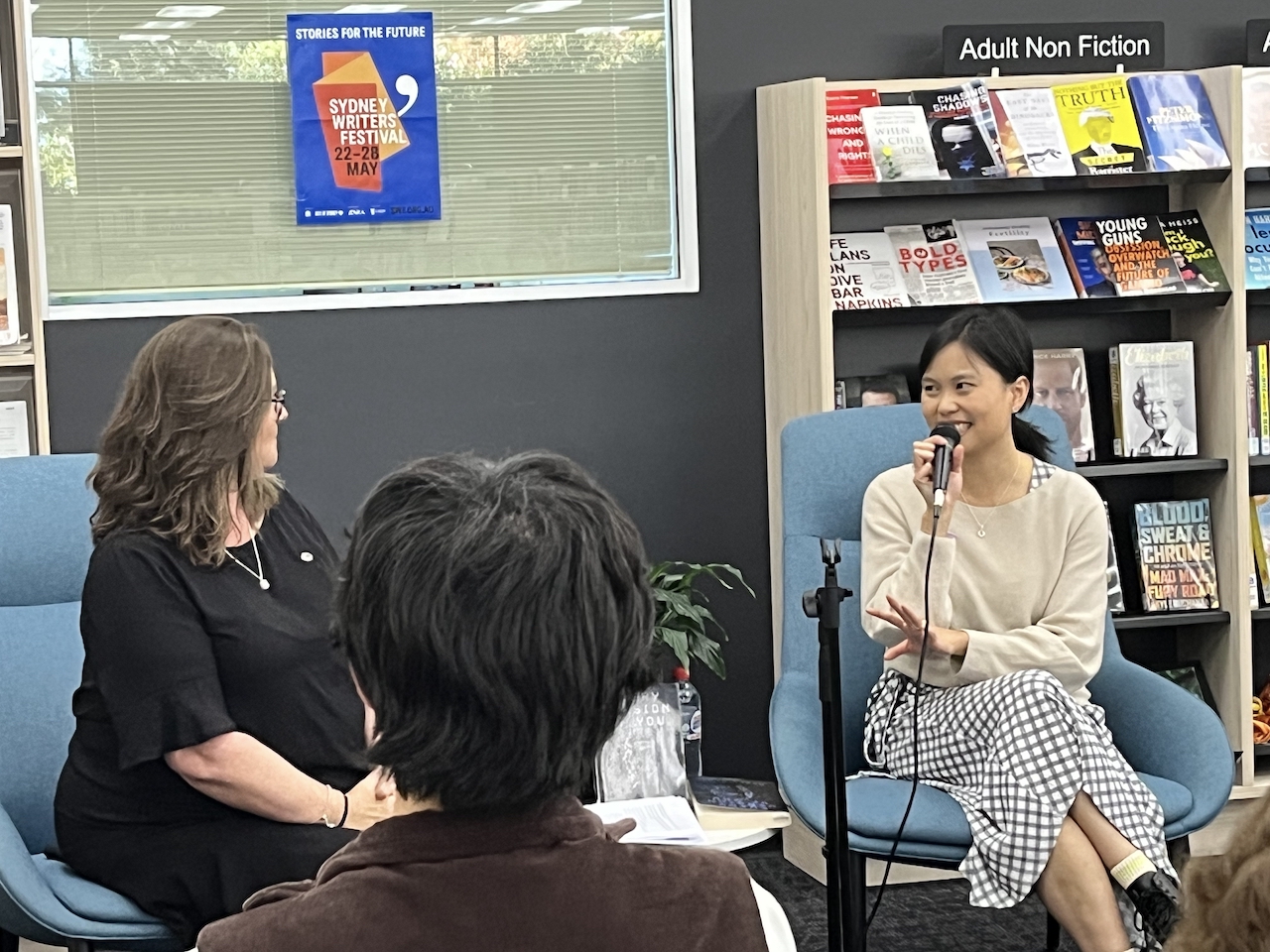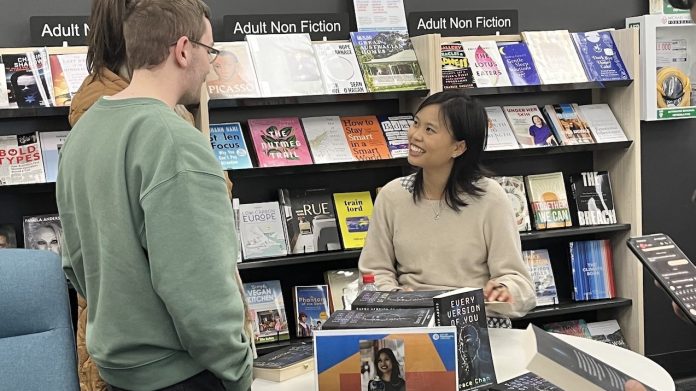Author and psychiatrist Grace Chan discussed the impact of technology on personal identity and society during a Sydney Writers Festival event at the Epping Leisure and Learning Centre on May 27.
In her science fiction novel Every Version of You, Ms Chan describes an immersive virtual reality called Gaia. Her book, set in Australia in the late 21st century, is about the future but it is also about the present.
“Writing science fiction, I’m not trying to make specific predictions about the future,” she said. “It’s a reflection about what I see in society around us. It’s a way to reflect on my own thoughts and feelings about technology.
“We use technology so constantly every day and it could be changing the way we conceive of ourselves and the way that we relate to each other.”
A central theme in Every Version of You is the concept of reinvention and exploration within digital spaces. Chan explores how technology provides a platform for people to curate their identities, connect with communities, and explore aspects of their identity that may be inaccessible in the physical world.
“I think technology and digital spaces pull us because we get a chance to reinvent ourselves in digital spaces; you can try on different avatars, you can curate how you present yourself in a digital space,” she said.
“You can pick the picture and filter it how you want and control how you present yourself in a genuine digital space. Technology can expand who you are as a person, and in a world where you can choose a different body, a different look and a different gender, it does open up exciting and interesting possibilities.”

Chan highlights the limitations of technology, particularly in domains necessitating human connection and empathy. While acknowledging technology’s positive impact on healthcare, she emphasised that artificial intelligence cannot replace essential aspects such as care and emotional support.
In addition to her work as a writer, Chan is also a psychiatrist but said she does not write about her job exclusively.
“I keep the side of my work very separate from my writing,” she said. “I think both my work and my writing spring very much from the same place – from my interest in people’s stories and how we put our own stories together into a sense of who we are and what’s important to us.
“I suppose for many people writing is a space that you create for yourself to process and reflect and think about the stuff you see day-to-day.”
Chan said her creative process is more organic than deliberate thinking.
“When the idea for the book came to me, I had a few of the key things in my mind. The key character, the two main characters and the final theme, that never changed.
“I suppose the more conscious part and the more deliberate parts were the rewrites and sort of building the world around it.
“I wanted to make the world around the technology feel really tangible and very granular and how to have specific little details that made you feel like you are really inhabiting both the physical world and this virtual world of Gaia.”
The process of world building, according to Chan, involves two aspects: hard world building and soft world building. Chan said the hard world building entails crafting the factual and detailed aspects of the world, such as different districts, their names, appearances, and the societal norms within them. Conversely, soft world building focuses on integrating these elements into the narrative through the characters’ perspectives and selectively introducing specific details.
Chan said she aims to strike a balance between providing enough information for readers to engage with the world while leaving room for their imagination to fill in the gaps.


